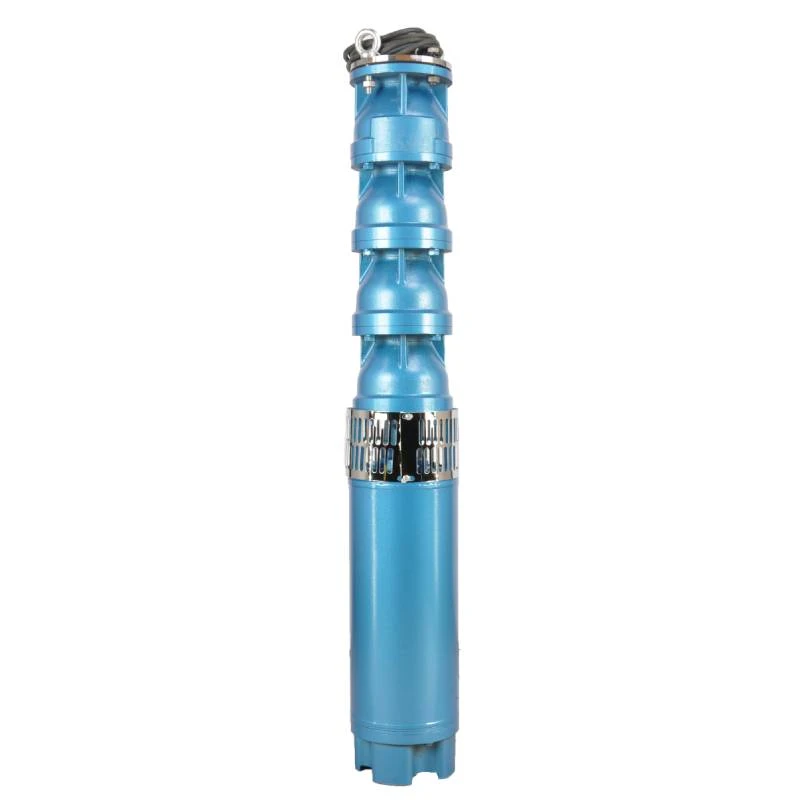Nov . 14, 2024 17:28 Back to list
pulling submersible well pump
Pulling Submersible Well Pumps A Comprehensive Guide
Submersible well pumps play a crucial role in the extraction of groundwater, particularly in agricultural, industrial, and residential applications. These pumps are designed to function underwater, making them ideal for deep well applications where other types of pumps might falter. However, when it comes time for maintenance, repair, or replacement, the process of pulling a submersible well pump can be challenging. This article aims to provide a detailed overview of submersible well pumps, the importance of proper maintenance, and a step-by-step guide for pulling them out for repairs.
Understanding Submersible Well Pumps
A submersible pump is a type of electric motor-driven pump that is submerged deep inside the well. Unlike traditional pumps that sit above ground and rely on suction to move water, submersible pumps push water to the surface, which makes them more efficient and capable of handling deeper water levels. They are commonly used in residential wells, irrigation systems, and even municipal water supply systems.
These pumps are equipped with a hermetically sealed motor that prevents water ingress, thereby ensuring reliable operation. Their design typically consists of a pump body, impellers, and a motor. The impellers help in moving water through the system, while the motor powers the pump.
Importance of Maintenance
Regular maintenance of submersible well pumps is vital for their longevity and efficient operation. Neglecting maintenance can lead to decreased performance, increased energy consumption, and ultimately, pump failure. Signs that a pump may need attention include reduced water flow, unusual noises, or fluctuating pressure levels. To avoid costly repairs, it is advisable to check the pump and its components periodically.
Pulling the Pump A Step-by-Step Guide
When a submersible well pump needs to be pulled for servicing, it requires careful planning and execution. Here’s a step-by-step guide to pulling a submersible well pump safely and effectively.
1. Gather Necessary Tools and Equipment Before starting the process, ensure you have all the necessary tools, including a pipe wrench, pliers, safety gloves, and a hoist or winch for lifting the pump. A well-documented plan can help streamline this process.
pulling submersible well pump

2. Turn Off Power Supply Safety is paramount. Always turn off the power supply to the well pump before attempting to pull it out. This prevents any risk of electric shock.
3. Remove the Protective Cover Most submersible installations have a protective cover or access panel. Safely remove this cover to expose the well casing.
4. Disconnect the Pump Wiring Carefully disconnect the electrical wiring and any other connections to the pump. Mark the wires if necessary to ensure correct reconnection later.
5. Lift the Pump Using a hoist or winch, attach it to the pump's lifting rope or cable. Make sure it is securely fastened before lifting. Begin to pull the pump straight up to avoid damaging the well casing and the pump itself.
6. Check for Blockages Once the pump is out of the well, inspect it for signs of damage, wear, or blockages. Clean any debris that may have accumulated on the pump or within the well casing.
7. Perform Necessary Repairs Depending on your findings, you may need to replace damaged components, clean the pump, or even replace the entire unit if the damage is extensive.
8. Reinstall the Pump Once maintenance is complete, the pump can be reinstalled by reversing the removal process. Make sure to securely reconnect all electrical and physical connections.
9. Test the System After reinstalling the pump, restore power and check to ensure the system is functioning correctly. Monitor for any unusual noises or leaks.
Conclusion
Pulling a submersible well pump is a complex task that should be approached with care and expertise. Understanding the workings of these pumps and adhering to a rigorous maintenance schedule will ensure they serve effectively over the years. When in doubt, consulting with a professional can prevent errors and help maintain the integrity of the well system. By following the right procedures, your submersible well pump can continue to provide reliable water supply for years to come.
-
Submersible Water Pump: The Efficient 'Power Pioneer' of the Underwater World
NewsJul.01,2025
-
Submersible Pond Pump: The Hidden Guardian of Water Landscape Ecology
NewsJul.01,2025
-
Stainless Well Pump: A Reliable and Durable Pumping Main Force
NewsJul.01,2025
-
Stainless Steel Submersible Pump: An Efficient and Versatile Tool for Underwater Operations
NewsJul.01,2025
-
Deep Well Submersible Pump: An Efficient 'Sucker' of Groundwater Sources
NewsJul.01,2025
-
Deep Water Well Pump: An Efficient 'Sucker' of Groundwater Sources
NewsJul.01,2025
-
 Submersible Water Pump: The Efficient 'Power Pioneer' of the Underwater WorldIn the field of hydraulic equipment, the Submersible Water Pump has become the core equipment for underwater operations and water resource transportation due to its unique design and excellent performance.Detail
Submersible Water Pump: The Efficient 'Power Pioneer' of the Underwater WorldIn the field of hydraulic equipment, the Submersible Water Pump has become the core equipment for underwater operations and water resource transportation due to its unique design and excellent performance.Detail -
 Submersible Pond Pump: The Hidden Guardian of Water Landscape EcologyIn courtyard landscapes, ecological ponds, and even small-scale water conservancy projects, there is a silent yet indispensable equipment - the Submersible Pond Pump.Detail
Submersible Pond Pump: The Hidden Guardian of Water Landscape EcologyIn courtyard landscapes, ecological ponds, and even small-scale water conservancy projects, there is a silent yet indispensable equipment - the Submersible Pond Pump.Detail -
 Stainless Well Pump: A Reliable and Durable Pumping Main ForceIn the field of water resource transportation, Stainless Well Pump has become the core equipment for various pumping scenarios with its excellent performance and reliable quality.Detail
Stainless Well Pump: A Reliable and Durable Pumping Main ForceIn the field of water resource transportation, Stainless Well Pump has become the core equipment for various pumping scenarios with its excellent performance and reliable quality.Detail
